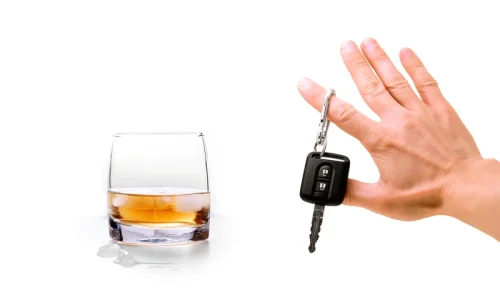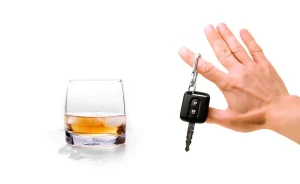
Try dimming the lights, turning off electronic devices, and relaxing by reading or taking a warm bath. A comfortable mattress and pillows can also encourage better, more relaxing sleep without the need for alcohol to help you wind down. Consider your habits with your alcohol intake to understand your patterns and triggers. This self-awareness can help you identify situations where you’re more likely to drink, and develop strategies to address them. Information provided on Forbes Health is for educational purposes only.
Drinking Water Before Bed

But part of a smart, sleep-friendly lifestyle is managing alcohol consumption so it doesn’t disrupt your sleep and circadian rhythms. It’s not because I don’t appreciate a glass of wine with a great meal, or a few beers on a hot summer evening. It’s because I know what alcohol can do to sleep and healthy circadian rhythms. Alcohol use and dependence appear to interfere with circadian rhythms—biological patterns that operate on a 24-hour clock. Evidence suggests that consuming alcohol may decrease the body’s sensitivity to cues, like daylight and darkness, which trigger shifts in body temperature and secretion of the sleep hormone melatonin.
Noise
Sleep architecture is biologically driven and finely calibrated to meet the body’s needs during nightly rest—changes to the natural, typical structure of sleep aren’t generally good for health or well being. REM sleep, which gets shortchanged in the first half of the night under the influence of alcohol, is important for mental restoration, including memory and emotional processing. Although experts can’t be certain that alcohol directly causes insomnia, numerous studies have found a link between this sleep disorder and alcohol consumption. More than 70% of those with alcohol use disorder (AUD) also experience alcohol-induced sleep disorders, such as insomnia, according to scientists in a 2020 review.
Can moderate alcohol consumption still affect my sleep?

With off-label use, doctors prescribe a drug for a purpose other than what the FDA approved https://ecosoberhouse.com/article/5-signs-that-your-wine-habit-is-becoming-a-real-addiction/ it for. If you and your doctor plan to stop your alprazolam, slowly lowering the dose is best. This can help you safely stop alprazolam with a lower risk of withdrawal symptoms. Consider asking your doctor for a schedule to follow when stepping down to lower doses.

Sleep timing regularity
People who typically snore or who have obstructive sleep apnea tend to display more severe snoring and lower blood oxygen levels after drinking alcohol, especially when they drink close to bedtime. People who regularly drink alcohol are 25% more likely to have obstructive sleep apnea, although the connection may be partly due to other shared risk factors such as obesity. Alcohol initially acts as a sedative, increasing the proportion of deep sleep at the beginning of the night. However, as the alcohol’s effects start to wear off, the body spends more time in light sleep, which is not as sound and may lead to more nighttime awakenings. As a result of these frequent awakenings, people tend to clock fewer hours sleeping after drinking alcohol.
- The key is to drink in moderation and give yourself time before going to bed, so the alcohol can clear your system.
- It is not yet known whether occasional nappers are more vulnerable than habitual nappers to the effects of napping on nocturnal sleep.
- In order to maximize the utility of sleep hygiene education in the general population, future research should address several key issues.
Answer three questions to understand if it’s a concern you should worry about.

Is there a risk of dependence or withdrawal with alprazolam?

A dose of 10 mg is the maximum daily dose that has been studied in treating panic disorder. Doctors reassess people taking more than 4 mg daily and consider whether a lower dosage may be effective. Read below for recommended dosages of alprazolam and other details about the does alcohol help you sleep drug. As mentioned, the snooze-inducing effect of alcohol doesn’t last all night. Sipping on a glass of wine or whiskey can help you drift off into dreamland quicker than without. If you’re going to have a drink before catching some shut-eye, consider digesting this information first.
Wine: The Solution To A Good Night’s Sleep?
- This may be because alcohol can be stimulating and fragment your sleep, it can cause or worsen anxiety and sleep disorders, or you may have developed a tolerance to the sedative effects and now poor sleep hygiene (among other things) is keeping you up.
- For low to moderate habitual users, the daily deviation from normal caffeine intake may be more relevant to sleep than absolute amounts.
- In a recent study, Ho and colleagues34 assigned habitual users to one week of caffeine or abstinence and found no change from baseline self-reported or actigraphy-assessed sleep.
- An important next step is to consider the empirical foundation for sleep hygiene, and identify appropriate modifications to improve its delivery and efficacy in the general population.
Before reaching for that glass, hear from the experts how alcohol before bed might affect your sleep. Besides just waking you up a lot, alcohol can disrupt your normal sleep patterns enough to create some longer-term issues you may need to address. If you have alcohol in your system when you hit the hay, you may not sleep very deeply, or for very long, on and off throughout the night. That’s because as alcohol starts to metabolize, the sedative effect wears off.
Dr. Abhinav Singh,
As a general rule, Meadows said, people should aim to leave at least three to four hours between drinking and sleeping to avoid sleep disruption. “For the best sleep, try to have at least four alcohol-free nights every week,” Meadows said. Moderate alcohol consumption is considered having two drinks or less per day for men and one drink (or less) per day for women, according to the Centers for Disease Control and Prevention. The more you drink in one sitting, the longer it can take for your body to metabolise that alcohol, which is why moderate drinking matters. Research even suggests that drinking alcohol slower can offset or delay the beverage’s sedative effect.
Studies have found conflicting information about how alcohol affects REM sleep. Alcohol appears to consistently delay the first REM sleep episode, and higher doses of alcohol appear to reduce the total amount of REM sleep. Suppressing REM sleep can have detrimental consequences for memory consolidation and other cognitive processes. For most people, alcohol induces a deeper-than-usual sleep in the first half of the night, followed by disrupted sleep in the second half of the night. If you fancy a glass of wine with dinner or a nightcap before bed, you might want to cap the Chiante and put the Negroni down — research shows that even low alcohol intake can stymie your sleep.


